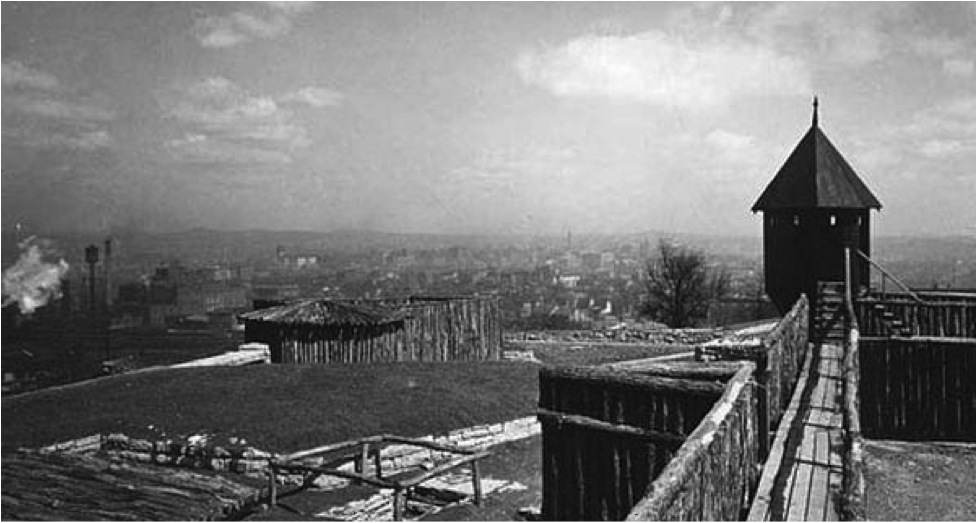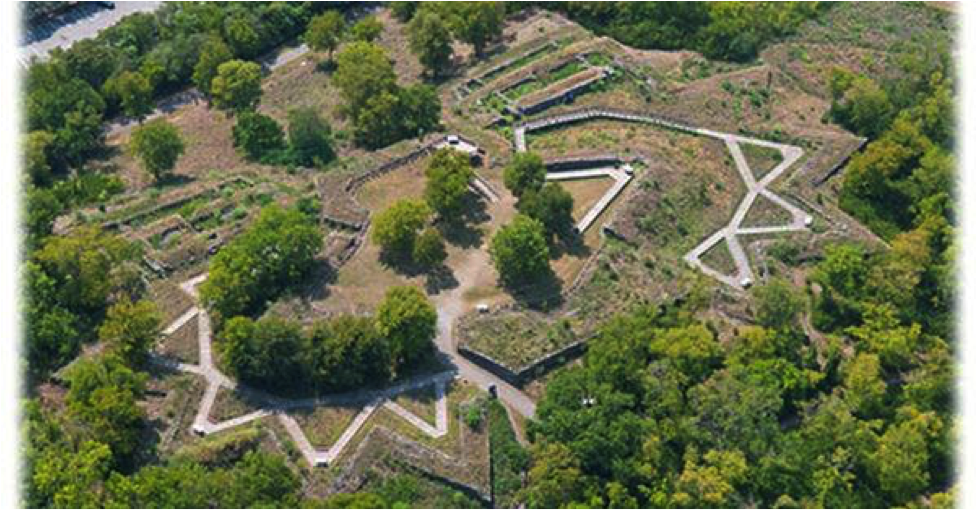As the largest inland stone fortification built during the Civil War, Fort Negley stood as the centerpiece of Union occupied Nashville. Fort Negley represents the effects of war and sudden occupation, the heartbreak of the Battle of Nashville, and the legacy of the Depression-era Works Progress Administration.
Nashville’s strategic location on the Cumberland River and networks of turnpikes and railroads made the city a valuable asset to both the Union and Confederate Armies. Following the surrender to the Union Army on February 25, 1862, Nashville became a fortified stronghold, second only to Washington D.C.
From August through December 1862, more than 2700 conscript laborers, predominately contrabands (runaway slaves) and free Blacks, constructed Fort Negley, atop St. Cloud Hill, as part of a massive fortification system. Fort Negley’s location, size, and guns discouraged Confederate attacks throughout the war. During the Battle of Nashville, December 15 and 16, 1864, Fort Negley’s artillery aided in driving off General Hood’s forces.
Tennessee rejoined the Union in July 1867. Union forces occupied Nashville and Fort Negley until September. At that time, the army dismantled the majority of Nashville’s defenses.
Following failed efforts to preserve Fort Negley as a national military park, St. Cloud Hill once again became a popular picnic area. The City of Nashville purchased the property in 1928. In 1936, 800 men working for the Works Progress Administration reconstructed Fort Negley at a cost of $84,000. The Fort reopened to the public in 1938. In the 1960s, Metro Parks removed the deteriorated stockade and closed the Fort to the public.
Fort Negley Visitors Center, opened in December 2007, features two films, access to the Civil War Soldier and Sailors System maintained by the National Park Service, and interactive touch screens highlighting occupied Nashville and Fort Negley.
Fort Negley Visitors Center partners with history and preservation groups, presents educational programming, and serves as the home of the Nashville Civil War Roundtable and Fort Donelson Camp 62, Sons of Union Veterans.




